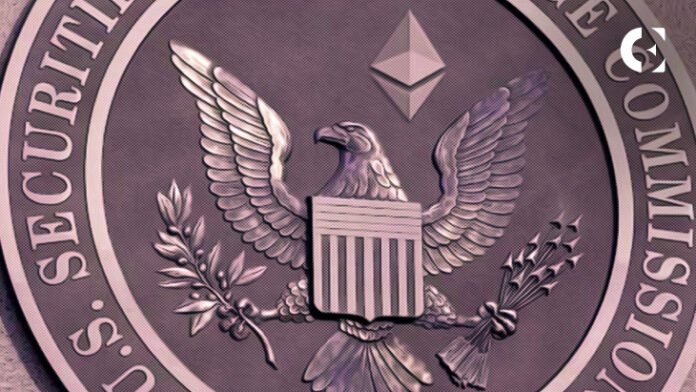- Pro-XRP lawyer accuses the SEC of unconstitutional expansion in the crypto market.
- He supported his argument with historical facts and legislative actions.
- Lawyer says SEC’s regulatory approach could classify everyday items as securities.
In a recent tweet, John Deaton, a prominent lawyer advocating for XRP, raised concerns over the alleged unconstitutional overreach of the Securities and Exchange Commission (SEC).
Deaton specifically addressed a claim by Paul Grewal, Coinbase’s Chief Legal Officer, about the SEC violating the law. To support his argument, Deaton presented historical facts and legislative actions that suggest the SEC’s overreach.
Deaton highlighted that until 2018, the regulatory body had no policy regarding SEC staff owning crypto. He pointed out that in the infamous 2018 speech by William Hinman, the SEC acknowledged a regulatory gap for crypto, including Bitcoin (BTC) and Ethereum (ETH), and their non-securities classification.
The lawyer also referred to the 2019 Annual Financial Stability Oversight Council Report, signed by influential figures such as Federal Reserve Chairman Jerome Powell. This report recognized the growing market cap of cryptos, explicitly mentioning BTC, ETH, Litecoin (LTC), and XRP. Notably, it did not reference U.S. securities laws, suggesting a lack of clear regulatory direction.
Deaton further noted that even Gary Gensler, the SEC Chair, acknowledged the regulatory gap for cryptocurrencies during his confirmation hearing in 2021. Gensler admitted that no existing framework adequately addressed crypto companies within the SEC and CFTC frameworks.
Furthermore, Deaton argued that there is no legal precedent in U.S. history supporting the existence of an investment contract without a direct relationship between the promoter/issuer and the buyer. He also noted no precedent for considering the secondary sale of an asset used in an investment contract as a new investment contract.
The lawyer pointed out that the Senate and the House proposed legislation to address crypto assets and redefine their regulatory oversight, some of which aimed to limit the SEC’s role or remove its regulatory authority altogether.
Ultimately, Deaton argued that Grewal’s claims were not exaggerated. He maintained that the SEC’s current approach represents an unconstitutional expansion of the Howey Test, under which everyday items, like oranges sold in grocery stores, could be retroactively classified as securities.
Disclaimer: The information presented in this article is for informational and educational purposes only. The article does not constitute financial advice or advice of any kind. Coin Edition is not responsible for any losses incurred as a result of the utilization of content, products, or services mentioned. Readers are advised to exercise caution before taking any action related to the company.










